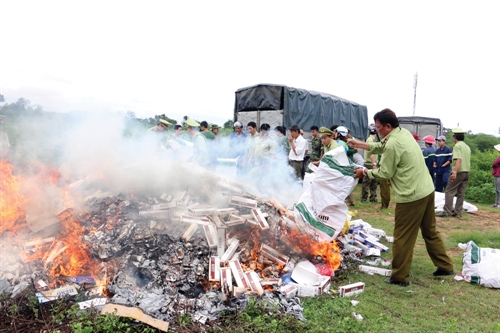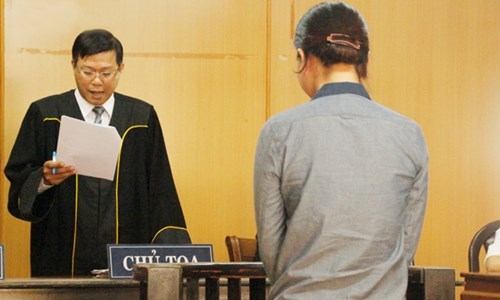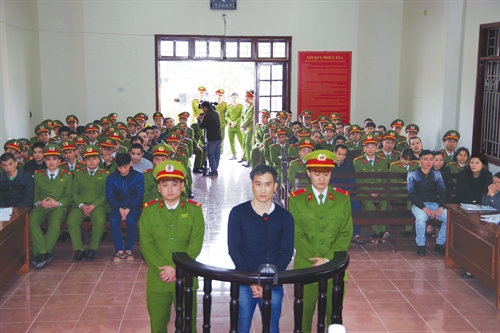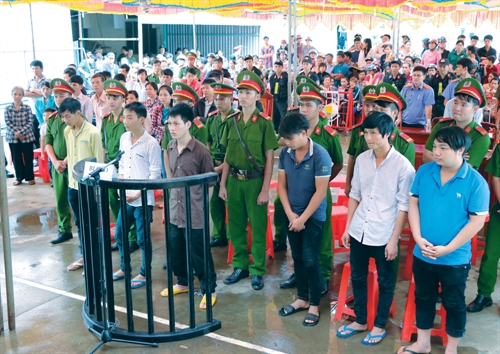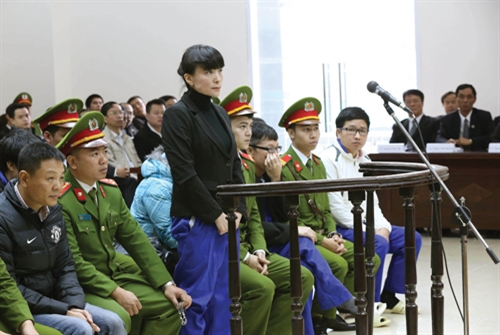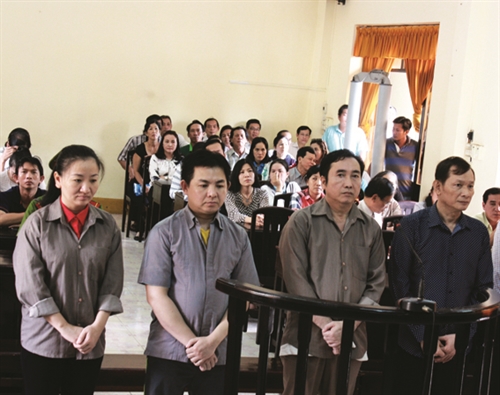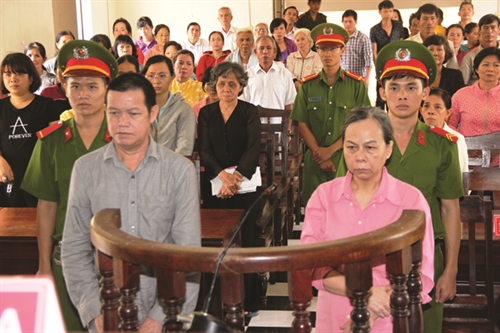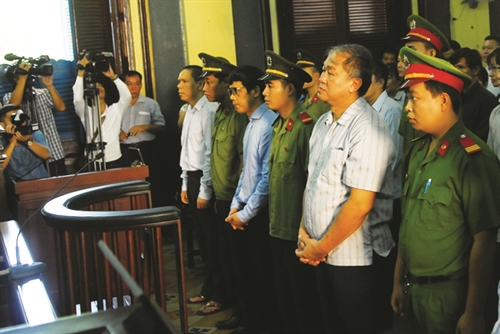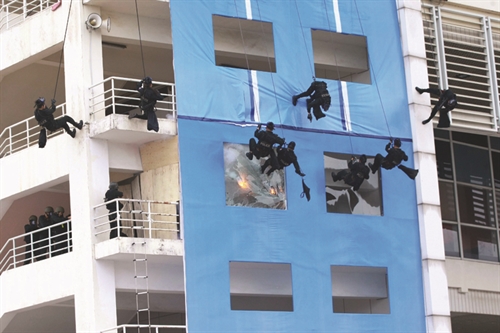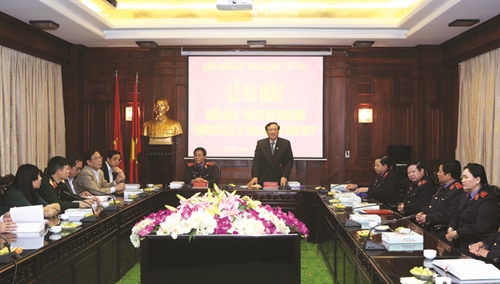Nguyen Van Thang
National Center for Criminal Records
In the current context of comprehensive global integration, sharing of information has become extremely important to promoting international exchange and socio-economic development. In criminal justice, foreign countries’ cooperation with Vietnam in sharing information on criminal records of Vietnamese citizens convicted by foreign courts is quite necessary. Such information helps develop the national criminal record database, facilitating the verification of criminal records and issuance of criminal record cards to Vietnamese citizens and related bodies.
Legal basis for sharing criminal record information
Under the Law on Judicial Records (LJR), Vietnamese citizens convicted in foreign countries are subject to management of criminal records, and excerpts of their judgments or previous criminal convictions provided by foreign authorities under treaties on mutual legal assistance in criminal matters or on the principle of reciprocity are used as a source for making their criminal records.
Vietnam has so far concluded treaties on mutual legal assistance in civil, marriage and family and criminal matters with many countries. These agreements normally state the range of matters in which judicial authorities of the contracting parties will cooperate with and assist one another, principles of solving conflicts of laws and conflicts of jurisdiction, methods of implementation of international legal mandate, principles of protecting legitimate rights and interests of their citizens, etc. In case Vietnam and a foreign country do not have such agreement, the judicial authorities of the two countries can assist one another on the basis of their national laws and international judicial practices, mainly on the principle of reciprocity.
To legislate the international cooperation in mutual legal assistance, Vietnam enacted the Law on Mutual Legal Assistance (LMLA) in 2007, marking a milestone in Vietnam’s process of international integration in legal and judicial cooperation. Under this Law, mutual legal assistance covers four issues: civil affairs, criminal matters, extradition, and delivery of persons serving imprisonment sentences. In this article, we focus only on international cooperation in sharing criminal record information.
Under the LMLA, mutual legal assistance in criminal matters also covers information sharing. And all treaties on mutual legal assistance in criminal matters concluded between Vietnam and foreign countries contain provisions on sharing and provision of information on criminal histories of their citizens.
The LMLA assigns the Supreme People’s Procuracy (SPP) to receive, forward and follow up information provided by foreign authorities, including information on offenses committed by Vietnamese citizens in foreign countries. Agreements on mutual legal assistance between Vietnam and foreign countries do provide an effective legal ground for the SPP to cooperate with foreign authorities in sharing criminal information, including criminal record information.
On that basis, the LJR concretizes the responsibility of the SPP to coordinate with other bodies in performing the state management of criminal records as follows:
“The Supreme People’s Procuracy shall send to the National Center for Criminal Records copies of excerpts of judgments and criminal records of Vietnamese citizens provided by foreign authorities within 10 days after the receipt of these excerpts.”
The SPP has assigned its Department for International Cooperation and Mutual Legal Assistance in Criminal Matters to act as the focal body in sending to concerned bodies information on criminal records of Vietnamese citizens provided by foreign authorities. Joint Circular 04 dated May 10, 2012, of the Ministry of Justice, Supreme People’s Court, Supreme People’s Procuracy, Ministry of Public Security and Ministry of National Defense, stipulates: “The Supreme People’s Procuracy assigns the Department for International Cooperation and Department for Prosecution and Supervision over Trial to provide criminal record information” and “The Department for International Cooperation of the Supreme People’s Procuracy shall send to the National Center for Criminal Records excerpts of judgments and criminal records of Vietnamese citizens provided by foreign authorities within 10 working days after receiving such excerpts.” (Article 15.1)
As per the above provisions, the SPP plays an important role in the mutual legal assistance in criminal matters and acts as the focal body in receiving and monitoring information provided by foreign authorities, including criminal record information of Vietnamese citizens living abroad, and transferring it to the Ministry of Justice (MOJ).
In the reverse direction, the LJR says that the MOJ (the National Center for Criminal Records - NCCR) is responsible for sharing information on criminal offenses of foreigners convicted by Vietnamese courts with the SPP at the latter’s request for provision to countries of these foreigners.
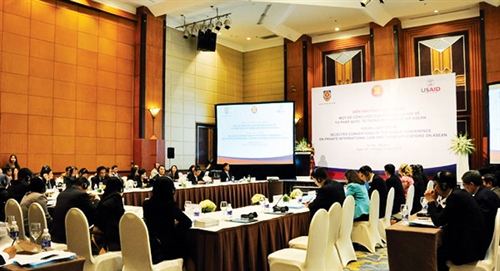 |
| ASEAN law forum on several conventions of The Hague Conference on Private International Law with relation to ASEAN__Photo: https://www.moj.gov.vn |
Current situation of criminal record information sharing
As reported by the SPP and MOJ, Vietnam has so far concluded treaties on mutual legal assistance in criminal matters with 17 other countries and are negotiating on six others. It has also acceded to 16 multilateral legal assistance agreements. Based on the treaties on mutual legal assistance which Vietnam has concluded and the principle of reciprocity, the SPP and foreign judicial authorities have effectively coordinated with one another and shared information on their citizens convicted in their respective countries.
During 2010-16, the MOJ received a total of 5,991 criminal records of Vietnamese citizens from five countries, namely the Czech Republic, Russia, Slovakia, Poland and Hungary as shown in the Table below.
Table: Judicial record information received during 2010-16
| Type of information | Number | Total | ||||||||
| Before 2010 | 2010 | 2011 | 2012 | 2013 | 2014 | 2015 | 2016 | |||
| Excerpts of previous criminal convictions | Czech | 545 | 1,094 | 1,665 | 31 | 1,936 | 3 | 7 | 1,494 | 4,839 |
| Russia | 1 | 6 | 7 | |||||||
| Slovakia | 12 | 14 | 26 | |||||||
| Poland | 282 | 813 | 1,095 | |||||||
| Hungary | 24 | 24 | ||||||||
| Total | 5,991 |
These countries have all concluded treaties on mutual legal assistance in criminal matters with Vietnam.
During the same period, the MOJ provided the SPP with information on criminal records of 149 citizens of six countries, including the United Kingdom, Republic of Bulgaria, Lao People’s Democratic Republic, Russia, Czech Republic and People’s Republic of China.
All received criminal record information has been promptly translated into Vietnamese for updating the NCCR-managed criminal record database and for issuing criminal record cards.
Problems and solutions
The sharing of information on criminal records of Vietnamese citizens living overseas among judicial bodies has been hampered by several problems.
The Vietnamese laws concerning mutual legal assistance still lack specific implementing regulations. Meanwhile, many provisions of the existing treaties on mutual legal assistance are general and therefore hard to apply, especially those signed with the former socialist countries which have experienced great political, social and legal upheavals. In order to create an adequate legal framework for effective mutual legal assistance, these treaties need to be thoroughly overhauled to suit the practical conditions of Vietnam and these countries.
Vietnam has yet to conclude mutual legal assistance agreements with countries where large numbers of Vietnamese citizens are studying or permanently residing, such as Germany, the US, Canada, Australia, etc. This has made the sharing of information on criminal records of Vietnamese citizens staying in these countries difficult or even impossible.
The sharing of information on criminal records of foreigners between the SPP and MOJ (the NCCR) remains limited. The SPP has so far provided only criminal record information of Vietnamese citizens living in five foreign countries to the MOJ, while the latter has shared criminal record information of citizens of only six foreign countries to the SPP.
The legality of the receipt and use of criminal record information remains unclear. These are in essence the recognition and enforcement in Vietnam of legally effective criminal judgments and rulings of foreign courts. Once such information is accepted for making criminal records, the concerned judgments and rulings are automatically recognized for enforcement in Vietnam without having to undergo any special procedures. Another difficulty in the receipt and use of criminal record information is that many matters ruled in judgments of foreign courts are hard to be clearly categorized as criminal or administrative ones in Vietnam, not to mention many crimes are defined differently from country to country.
Although the LMLA requires the SPP to report to the MOJ on the performance of judicial mandate in criminal matters, there exists no mechanism for the MOJ to supervise the receipt and provision of information on criminal records of Vietnamese citizens living overseas by the SPP. On its part, the SPP has not always been updated of the number of foreigners convicted by Vietnamese courts which falls under the management of the MOJ.
Since international cooperation in crime prevention and control is indispensable, competent bodies should put forward solutions to raising the effectiveness of mutual legal assistance in criminal matters in general and of criminal record information sharing in particular as well as to improve coordination between the SPP and MOJ in this work.
For the immediate future, more specific regulations on criminal record information provision and sharing should be issued, focusing on establishing clear procedures for these activities, specifying the competence and responsibility of concerned competent bodies, and creating a supervision mechanism to ensure effective information sharing.
For the long term, separate laws should be built to regulate different areas of mutual legal assistance. The current LMLA should also be early revised to conform with Vietnam’s international commitments, meet requirements of practical crime prevention and control and help settle criminal cases and matters in the context of international integration and judicial reform. The scope of regulation of the LMLA should be clearly distinguished from those of specialized laws on judicial procedures. The LJR should be revised to have specific provisions on recognition of the legal validity of criminal record information and appropriate methods of using such information.
Vietnam should quickly accede to or conclude more treaties on mutual legal assistance in criminal matters, especially with countries which host large numbers of Vietnamese citizens.-
